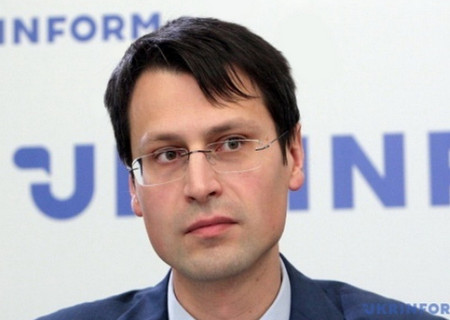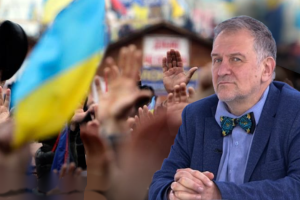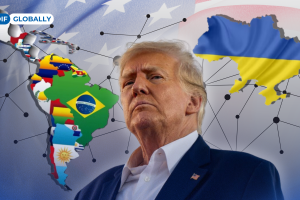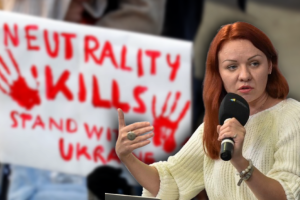The Kolchuga at the bottom of the Baltic Sea

Source: NV
It is not the first time when intelligence officers become hostages of political games. This is an old rake that should be removed from American-Ukrainian relations
Let's start with the main thing. The publication in The New York Times, which is based on a leaked intelligence assessment of the circumstances of the explosion and critical damage of the Russian Nord Stream 2 gas pipeline, does not contain data about Ukraine's responsibility.
As it follows from the article, American intelligence, based on the collected data, only assumes the involvement of "opponents of Putin or Russia", who may have citizenship of Ukraine or Russia, in blowing up the NS-2 At the same time, the same intelligence, as stated in the article, is not complete and sufficient for any valid conclusions.
Here is the whole fact of this material. However, the authors of the article persistently interpret the words of high-ranking officials of the U.S. government, from whom they actually received the information, as a hint of some "pro-Ukrainian trail" and the possibility of the responsibility of some anonymous proxy agents.
In this situation, it is extremely important to carefully read and separate the journalist’s opinion from the quotes of government officials. So, anonymous representatives of the U.S. government, and journalists conspicuously avoiding the phrase "Biden's administration", said that they remain "open" to the version of the involvement of persons with ties to the Ukrainian government or special services. So nothing is confirmed or excluded.
On the same day, another publication on the same subject appears in the German press. These are no longer leaks from intelligence, but from an official investigation. In particular, we learn from the article that a yacht came under the suspicion of German investigators, where traces of explosives were found, which was not far from the place of explosions on gas pipelines. The only connection with Ukraine is that the yacht belongs to a Polish company owned by two citizens of Ukraine.
It is important that German journalists and investigators honestly admit that the Europeans received a hint about the possible involvement of "Ukrainian commandos" in the fall from "some Western intelligence". This also ends the factual, and German journalists point to it without any other hints. On the contrary, they clearly say that there is not enough evidence to talk about both the "Ukrainian trace" and an "operation under the foreign flag" to substitute for Ukraine.
Now, it's important to pay attention on a number of political risks and stereotypes mentioned in the NYT article.
Firstly, according to U.S. government officials interviewed by the NYT, Russia is not interested at all in harming its economic interests and undermining the gas pipeline that brought it an income. They justify their words by the fact that intelligence has not yet found evidence of the involvement of Russian special services. However, the thesis that Russia does not sacrifice economic benefits in confrontation with the West does not stand the test of facts, because Russia destroyed long-term economic relations with the EU with its own hands by attacking Ukraine. It was not deterred by the threat of losing half of its $300 billion gold and currency reserves.
Secondly, NYT journalists point out that Ukraine is still not transparent enough for the U.S. government in its actions against Russia. In particular, Kyiv did not warn Washington about sabotage against air bases and warehouses in occupied Crimea, attacks on the bridge between occupied Kerch Strait and the Russian Taman, and air bases housing strategic bombers. And this, according to the Americans, prevents Biden administration from confidently rejecting any speculations about the involvement of Ukraine, despite the high level of trust achieved during the year of the war in relations with the Zelenskyy administration.
In addition, unlike Zelenskyy, Putin does not need the trust of the Americans at all.
However, the history of the end of 2021 and the entirety of 2022 proved that even with powerful intelligence capabilities, the U.S. has even less understanding of the Kremlin's intentions and plans. In addition, unlike Zelenskyy, Putin does not need the trust of the Americans at all. Quite the opposite – he seeks to increase the level of strategic uncertainty by tearing up the Strategic Offensive Arms Limitation Agreement.
The only point that is really worth paying attention to is the American publication's observation that in the fall of 2022, after the detonation of the "Northern Streams", "assumptions" and "fear" began to circulate in American government circles that Ukraine might be involved.
As the famous classic said, "that's how it used to be." Such "assumptions" along with the political interpretation of the intelligence officers, became the basis for the "Kolchuga scandal" in 2002 - the Ukrainian leadership was accused of supplying military equipment to Iraq to circumvent sanctions. The accusations turned out to be groundless.
However, the Ukrainian leadership should take into account the lessons of the past. In Washington, they believed in Leonid Kuchma’s secret devices, because they knew how corrupt and fixated on the monopolization of power his administration was. Therefore, similar trends in the Office of the President or in the closest circle of Volodymyr Zelenskyy are unacceptable, because this is the path of losing trust and disaster.
Washington also needs to do its homework. Trust in security, defense and intelligence requires strong mutual commitments. Public support for Ukraine's accession to NATO and a special bilateral agreement on defense cooperation are the basis that will strengthen and enrich the cooperation between Ukraine and the U.S.









